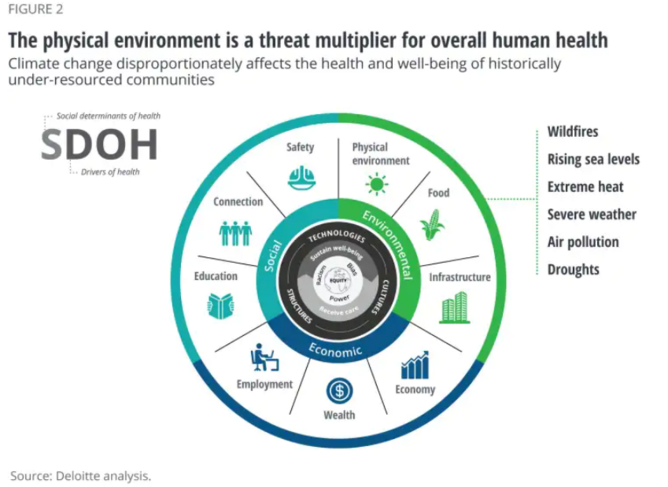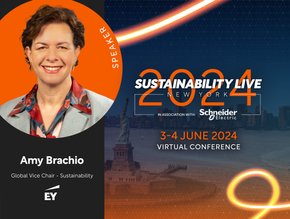Deloitte highlights the climate change healthcare dilemma

Healthcare has a difficult relationship with climate change and human health is declining as a result of the rising temperatures and sustained levels of pollution. But how could healthcare be classed as unsustainable?
The industry is one of the largest contributors to the current levels of carbon emissions. If the healthcare industry was a country, it would be the fifth-largest contributor to greenhouse gases on the planet. In the US, the industry accounts for around 8 to 9.8% of national emissions.
The irony is a kind of boomerang effect as global health becomes a concern in relation to the climate crisis and leaders are seeing health care costs rise. Deloitte has provided insight into this and the National Resources Defense Council claims that air pollution and climate change currently generate more than US$800bn in costs for the US healthcare sector per year.
Changing healthcare provisions to mitigate climate change
Elizabeth Baca, MD, MPA, Specialist Leader, Deloitte Consulting, LLP, says that “over the next few years we will see an increasing number of health care organizations start to track, report and reduce their carbon emissions, particularly paying attention to scope 3 emissions, but given their unique context, they will not only work to reduce and mitigate carbon emissions, [but they will also] look to seek ways to capture the co-benefits to health. For example, capturing benefits from improved air quality.”
“There will also be more collaboration across the ecosystem. Scope 3 emissions are still a challenge to tackle, but one organisation’s scope 1 is another’s scope 3 and through new collaborative engagement we’ll see the acceleration of what is possible to decarbonize. Ideally, we will also see more public-private engagement for innovative pilots to bring together policy and practice."
Healthcare organisations must take action
Pollution and the inhalation of harmful gases is not the be-all and end-all of our concerns. Natural disasters are taking lives and injuring many in the process.
“We have already seen impacts in places like California where I live due to wildfires ranging from rolling power outages to disruption of operations and impact on facilities directly,” says Baca.

“Direct impact on operations will be notable with increasingly severe storms but additionally given the health impacts from high heat, poor air quality to mental health burden, there will be a direct impact on health services. This is why building resilience and new care models and innovation will be so important to protect from these potential disruptions.”
So, how do we build resilience? While emissions reduction is a no-brainer for the healthcare industry, the ability to meet the needs of more patients is critical, especially in times of influx. Technology is already playing a critical role in developing the patient experience and driving a new generation of digital healthcare, which will also encourage further sustainability benefits. Deloitte’s report goes into detail about some of the impacts on human health and how technology is driving a new era of virtual care.






